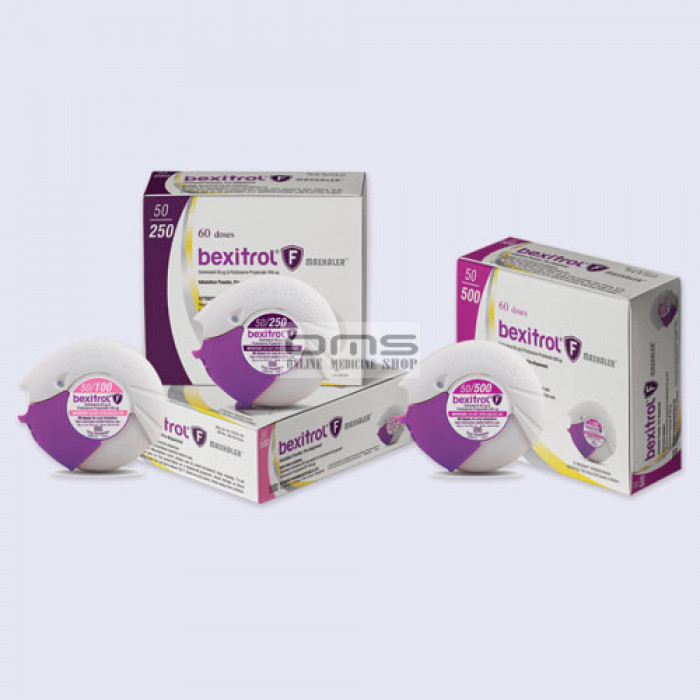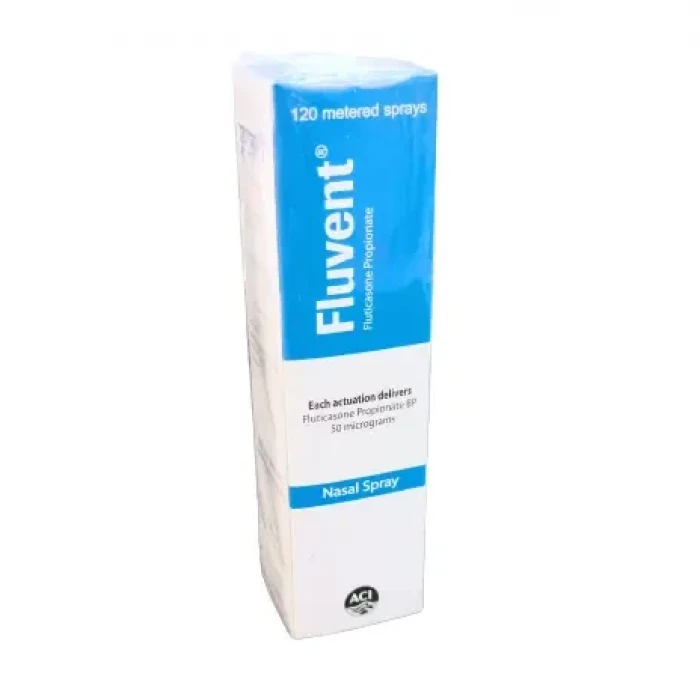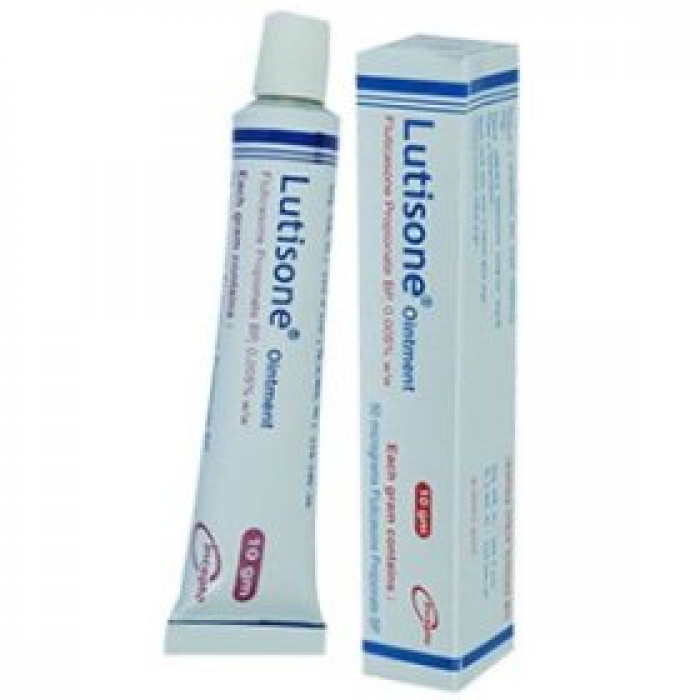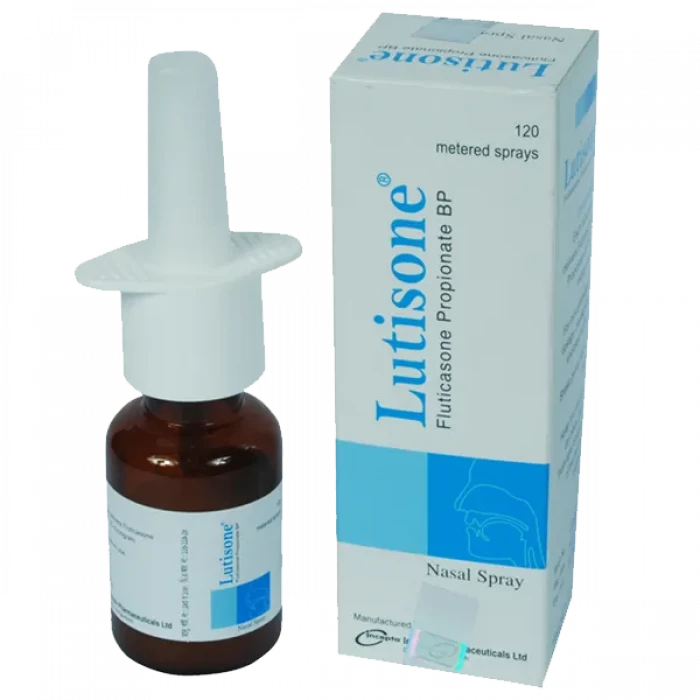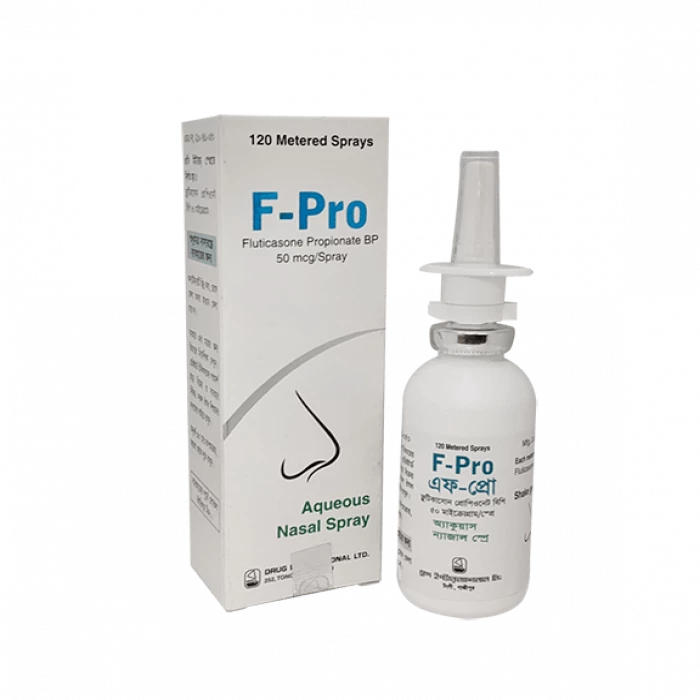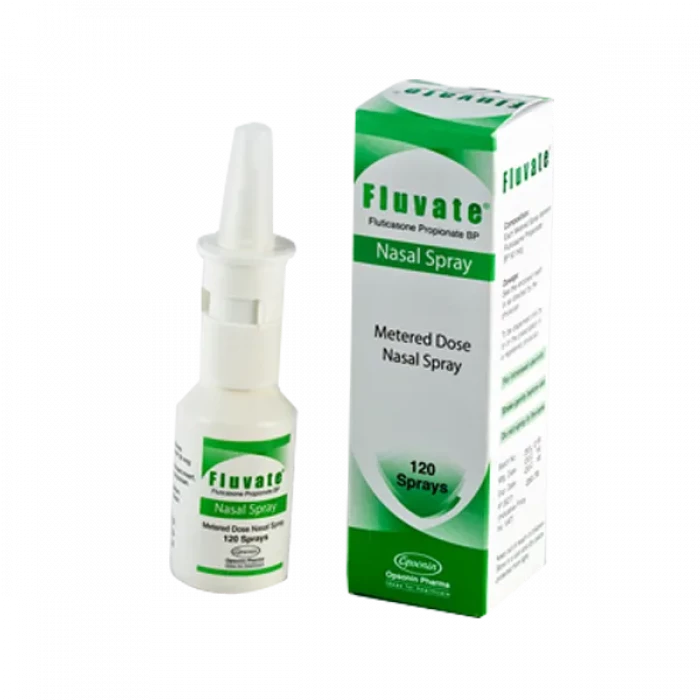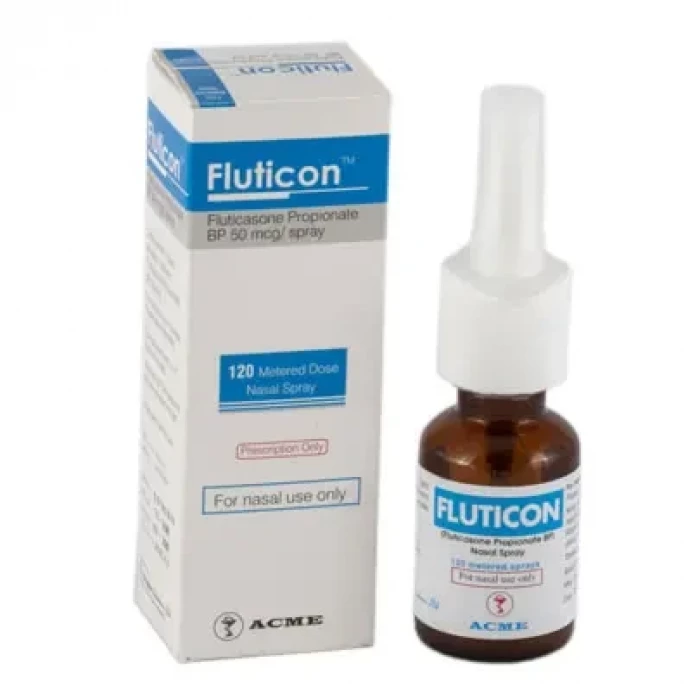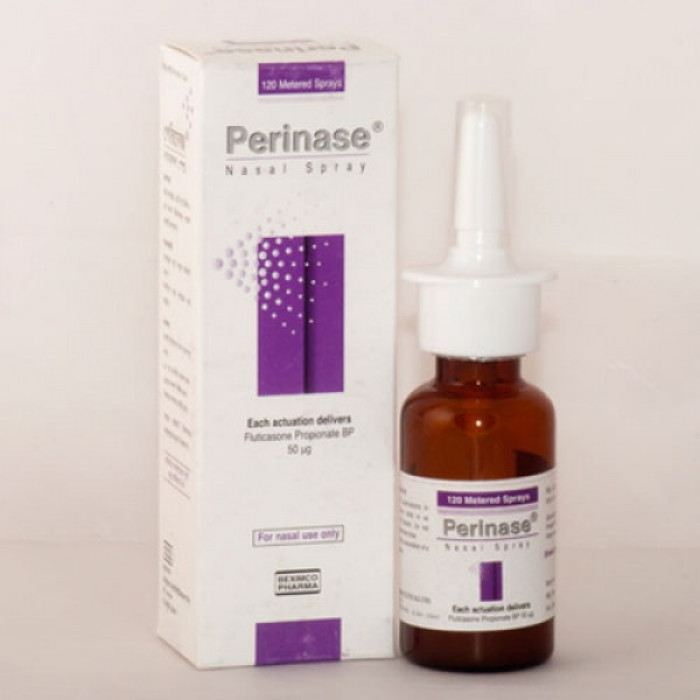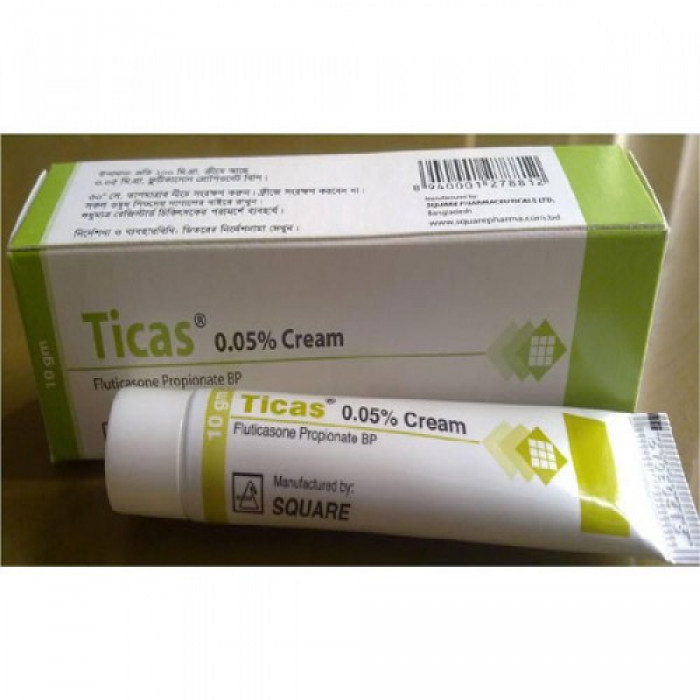
✔ 100% Authentic Product
👁️ Currently Viewing 2120
Ticas 0.05% Cream 10gm
Fluticasone Propionate is a corticosteroid used to prevent and manage symptoms of asthma and chronic obstructive pulmonary disease (COPD). Asthma is a long-term condition where the airways become inflamed and produce excess mucus, leading to breathing difficulties. COPD refers to a group of lung diseases, including emphysema and chronic bronchitis, that cause airflow blockage and breathing issues.
Fluticasone Propionate works by reducing inflammation and calming the immune system in the lungs, which helps make breathing easier. This medication alleviates symptoms such as shortness of breath and wheezing.
Discount
Price: ৳ 86
MRP:
৳
90.61
5%
Off

100% Genuine Products, Guaranteed

Safe & Secure Payments, Always

Fast, Secure & Efficient Delivery

Proper Packaging
 Cash on Delivery - All over Bangladesh
Cash on Delivery - All over Bangladesh Regular Delivery - 12-24 Hours, Dhaka City* Charge Tk.39-59
Regular Delivery - 12-24 Hours, Dhaka City* Charge Tk.39-59 Regular Delivery - 24-48 Hours, Other Cities* Charge Tk.99-110
Regular Delivery - 24-48 Hours, Other Cities* Charge Tk.99-110
 ফ্রি ডেলিভারিঃ - ৯৯৯ টাকা+ অর্ডারে, ঢাকা
শহরে
ফ্রি ডেলিভারিঃ - ৯৯৯ টাকা+ অর্ডারে, ঢাকা
শহরে ফ্রি ডেলিভারিঃ - ২৯৯৯ টাকা+ অর্ডারে, ঢাকার
বাহিরে
ফ্রি ডেলিভারিঃ - ২৯৯৯ টাকা+ অর্ডারে, ঢাকার
বাহিরে
100% Genuine Products, Guaranteed
Safe & Secure Payments, Always
Fast, Secure & Efficient Delivery
Proper Packaging
 Cash on Delivery - All over Bangladesh
Cash on Delivery - All over Bangladesh Regular Delivery - 12-24 Hours, Dhaka City* Charge Tk.39-59
Regular Delivery - 12-24 Hours, Dhaka City* Charge Tk.39-59 Regular Delivery - 24-48 Hours, Other Cities* Charge Tk.99-110
Regular Delivery - 24-48 Hours, Other Cities* Charge Tk.99-110 ফ্রি ডেলিভারিঃ - ৯৯৯ টাকা+ অর্ডারে, ঢাকা
শহরে
ফ্রি ডেলিভারিঃ - ৯৯৯ টাকা+ অর্ডারে, ঢাকা
শহরে ফ্রি ডেলিভারিঃ - ২৯৯৯ টাকা+ অর্ডারে, ঢাকার
বাহিরে
ফ্রি ডেলিভারিঃ - ২৯৯৯ টাকা+ অর্ডারে, ঢাকার
বাহিরে
✅ Description:
Ticas 0.05% Cream (Fluticasone propionate) in its topical form is used to treat various inflammatory skin conditions, including dermatitis (skin irritation) and eczema (itchy, swollen skin). Ticas 0.05% Cream helps alleviate symptoms such as skin redness, blisters, soreness, and rashes. It works by preventing the release of certain chemicals in the body that cause inflammation, reducing swelling, redness, and pain associated with these skin conditions.
Safety Advices

Alcohol
UNSAFE
It is not known if alcohol affects Ticas 0.05% Cream. Please consult your doctor if you have any concerns.

Pregnancy
CONSULT YOUR DOCTOR
The safety of Ticas 0.05% Cream in pregnant women is unknown. Therefore, it is given to pregnant women only if the doctor thinks the benefits outweigh the risks.

Breastfeeding
CONSULT YOUR DOCTOR
It is unknown whether Ticas 0.05% Cream is excreted in human milk. It is given to breastfeeding mothers only if the doctor thinks the benefits outweigh the risks.

Driving
SAFE
Ticas 0.05% Cream usually does not affect your ability to drive or operate machinery.

Kidney
SAFE IF PRESCRIBED
Limited information is available. Please consult your doctor if you have any concerns. Your doctor will prescribe only if the benefits outweigh the risks.

Liver
SAFE IF PRESCRIBED
Ticas 0.05% Cream should be taken cautiously in patients with hepatic disease.
✔️ Uses of Ticas 0.05% Cream
- Allergic rhinitis
- Inflammatory skin conditions
✔️ How does Ticas 0.05% Cream work?
Ticas 0.05% Cream (Fluticasone propionate) works by inhibiting certain cells causing redness and swelling (mast cells, neutrophils, lymphocytes, and macrophages) as well as by blocking the release of chemicals causing allergic reactions (histamine).
✔️ Side Effects of Ticas 0.05% Cream
- Dryness and irritation of the nose and throat
- Headache
- Nose bleed
- Allergic Skin Reaction
- Difficulty in breathing
✔️ Quick Suggestions:
- Apply a thin layer of the medicine to the affected area as instructed by your doctor.
- Follow all the usage instructions mentioned on the label or the package insert.
- Do not apply in larger or smaller quantities than recommended.
- Do not cover the application area with bandages or other coverings unless specifically instructed by your doctor.
- Contact your doctor if symptoms do not improve or resolve after 2 weeks of use.
✔️ Indication of Ticas 0.05% Cream
Ticas is used to relieve the symptoms of inflammation and itching associated with corticosteroid-responsive eczema or dermatitis.
Use as directed by a registered physician.
✔️ Pharmacology
Fluticasone propionate is a glucocorticoid that has strong topical anti-inflammatory properties with minimal HPA-axis suppression when applied to the skin. Its therapeutic index is higher than that of most other available steroids. Fluticasone propionate binds selectively to glucocorticoid receptors, which are thought to mediate the anti-inflammatory effects of corticosteroids. Studies show that it has a strong affinity for glucocorticoid receptors, a weak affinity for progesterone receptors, and virtually no affinity for mineralocorticoid, estrogen, or androgen receptors. The duration of the therapeutic effect is linked to the half-life of the fluticasone-glucocorticoid receptor complex, which is around 10 hours.
✔️ Dosage & Administration
Apply a thin layer to the affected area of the skin once daily.
✔️ Interaction
Ticas may interact with anti-fungal (ketoconazole) and HIV medications (ritonavir). Inform your doctor if you are taking any other steroid medicines.
Inform your doctor if you have hyperadrenocorticism, infections, ocular herpes simplex, glaucoma, cataracts, bone problems, chickenpox, measles, or tuberculosis.
✔️ Ticas is contraindicated in patients with the following conditions:
- Rosacea
- Acne vulgaris
- Perioral dermatitis
- Primary viral skin infections (e.g., herpes simplex, chickenpox)
- Hypersensitivity to any ingredients
- Perianal and genital itching
- Fungal or bacterial infections as the primary cause of skin lesions
- Dermatoses in children under one year of age, including diaper dermatitis
✔️ Pregnancy & Lactation
Fluticasone propionate should only be used during pregnancy if the potential benefit to the mother outweighs the possible risk to the fetus. It is unknown whether fluticasone is excreted in breast milk, but given the low likelihood of systemic absorption at recommended doses, the risks to a nursing infant are considered low. The potential benefits should be weighed against potential risks when used by breastfeeding mothers.
✔️ Precautions & Warnings
Although Ticas has a low risk of systemic absorption, prolonged use of large amounts over a large skin surface area—especially in infants and small children—could lead to adrenal suppression. Children are more susceptible to systemic toxicity because they absorb higher amounts of topical corticosteroids. Prolonged use on the face can cause skin thinning, so this should be taken into account when treating severe eczema. Infected inflammatory lesions require antimicrobial treatment, and corticosteroids should be discontinued if the infection spreads. Occlusive dressings may promote bacterial growth, so the skin should be cleansed before applying a fresh dressing.
✔️ Storage:
Store below 30°C. Do not freeze. Keep out of reach of children.
⚠️Disclaimer:
At ePharma, we’re committed to providing accurate and accessible health information. However, all content is intended for informational purposes only and should not replace medical advice from a qualified physician. Please consult your healthcare provider for personalized guidance. We aim to support, not substitute, the doctor-patient relationship.




